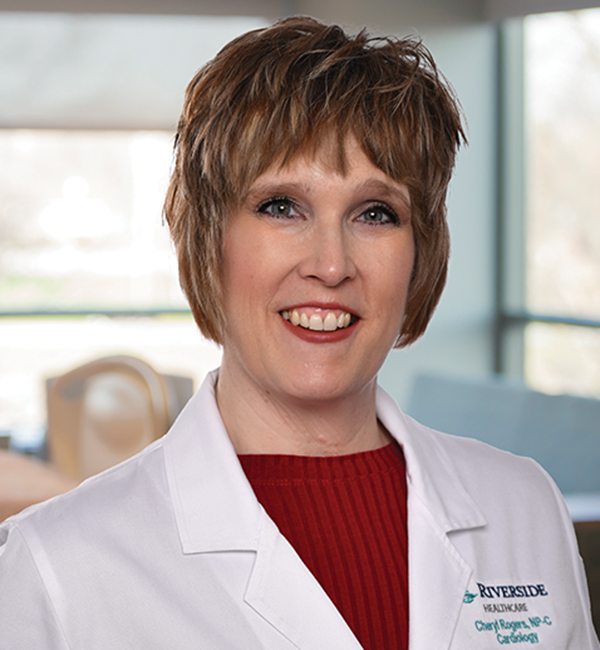Heart failure doesn't mean your heart suddenly stops; instead, it's a gradual decline in its pumping efficiency. It can affect the left, right or both sides of the heart, resulting in a range of symptoms and challenges.

"Heart failure is a chronic medical condition," says Cheri Rogers, NP-C, CHFN, with Riverside Heart & Vascular Institute Heart Failure Clinic. "But just because it is a chronic condition does not mean that it is going to take over your life. Working closely with your health care team, we can help you tailor a plan to manage your heart failure effectively, which could bring you a better quality of life."
What Causes Heart Failure?
Heart failure can be caused by various factors, including:
- Coronary artery disease
- High blood pressure
- Diabetes
- Heart valve diseases
- Heart infections
Lifestyle choices like smoking, obesity and excessive alcohol consumption can also increase your risk. Your health care team will explore your medical history and risk factors to identify the underlying cause.
"If you think you may be at risk for heart failure, a great place to start is talking with your primary care doctor," says Rogers. "They can help you understand what could be causing your symptoms by running tests and involving a cardiologist if further testing is needed."
5 Key Facts About Heart Failure
1. Heart Failure is More Common Than You Think
About 6.2 million adults in the United States have heart failure. By 2030, that number is expected to be 8 million adults. If you have experienced heart failure, you are not alone.
2. Simple Blood Tests Can Help Diagnose Heart Failure

Your primary care provider may ask about your medical and family health history during your physical exam. If heart failure is suspected, a brain natriuretic peptide test may be ordered. This blood test measures the hormone levels released in your blood if the heart is damaged. You may then be referred to a cardiologist for further testing, depending on the results.
3. Heart Failure Symptoms Change Over Time
These are some of the common symptoms, which may not be noticeable at first but worsen over time:
- Weight gain with swelling in the legs and stomach
- Shortness of breath while active, at rest or lying down
- Feeling tired and weak
- Coughing or wheezing that persists
Conditions That Can Lead to Heart Failure

Heart failure can also slowly develop from chronic medical conditions, such as:
- Irregular heartbeat
- Coronary artery disease
- High blood pressure
- Diabetes
- Severe lung diseases
- Obesity
Important to know: Heart failure can also occur suddenly, following a heart attack or other event.
4. Effective Treatments Are Available
The good news is that treatments for heart failure work well. Your care plan may include:
- Lifestyle changes - reducing sodium and liquid intake, getting daily exercise
- Medications to help your heart work better
- Medical devices when needed
- Surgical options for advanced cases
5. You Can Take Steps to Prevent Heart Failure

Healthy choices can prevent or delay heart failure. Keep your heart healthy by:
- Eating healthy foods
- Exercising daily
- Reducing your daily stress
- Avoiding nicotine and alcohol
Connect with Others Who Understand
Join Riverside's Free Heart Failure Support Group. Connect with other heart failure patients and caregivers in our community. All meetings are free, and walk-ins are welcome! Visit our heart failure support group page for dates and topic information.
Expert Heart Care Close to Home
At Riverside Heart & Vascular Institute, our heart failure specialists work with you to create a personalized care plan. We're here to help you manage your condition and improve your quality of life.
Find a heart specialist or learn more about our heart services.
Sources: American Heart Association; Centers for Disease Control and Prevention; MedlinePlus; National Institutes of Health